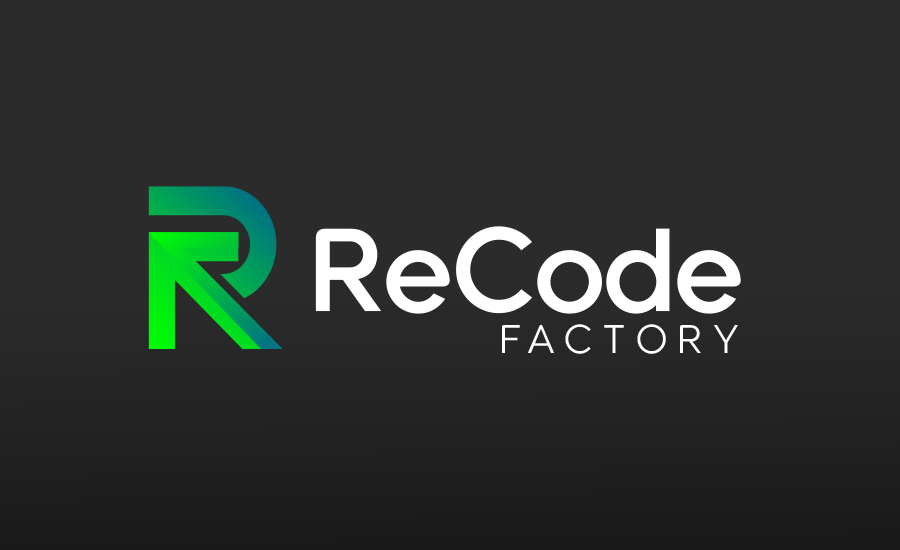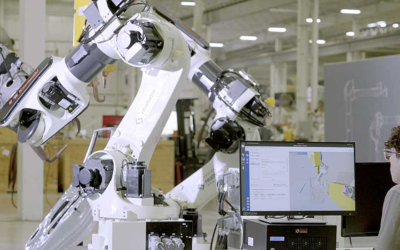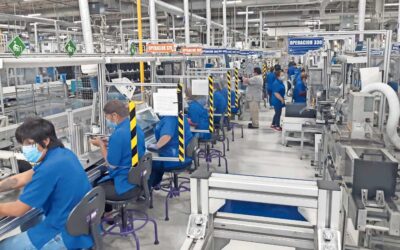Chapter 1: The Awakening of a Need
In the heart of the industrial zone, where the hum of the machines wove the symphony of progress, stood the emblematic company known for its innovation and excellence: TecnoAvance. Founded two decades ago, TecnoAvance had consolidated itself as a leader in the manufacturing of electronic components, thanks to its operating control platform, a technological marvel that coordinated every aspect of production with millimetric precision.
The platform, dubbed “NeuroNet” by its creators, was the brain behind the orchestration of the machines on the plant floor. From inventory management to quality control, NeuroNet ensured that each manufactured piece met the highest standards. Its intuitive interface allowed operators, regardless of their technical skill level, to manipulate complex operations with ease. It was, without a doubt, the pillar on which TecnoAvance’s success was built.
However, not everything was perfect in this idyllic technological scenario. The platform had been developed in a previous era, using an outdated programming language which, despite being a marvel at the time, was now obsolete. Additionally, support for Windows 10, the operating system on which NeuroNet ran, was coming to an end. These aging technologies not only posed an increasing risk of cybersecurity threats but also limited TecnoAvance’s ability to integrate more modern technological advancements such as artificial intelligence.
The leadership of TecnoAvance was facing a monumental dilemma. Transitioning to a new platform not only implied a significant technological challenge but also an investment of time and resources that the company could not afford to waste. The competition was fierce, and stagnation was their enemy.
The IT team at TecnoAvance worked tirelessly, exploring all possible options. It was a race against time, looking for a solution that would allow the company not only to maintain its position in the market but to continue to grow. After months of intense research, the team found the answer in RedCode Factory, a company specializing in software reengineering.
ReCode Factory promised an elegant and effective solution to TecnoAvance’s dilemma. They offered not only to modernize NeuroNet using cutting-edge technologies but also to ensure that the original platform continued to operate while changes were made. This approach was precisely what TecnoAvance needed: a way to advance without halting production, a true digital renaissance.
With the discovery of ReCode Factory, TecnoAvance glimpsed a light at the end of the tunnel. But there were still challenges to overcome, and the company’s success was not guaranteed. It was the beginning of a journey that would test their ingenuity, adaptability, and capacity to overcome obstacles on the road to innovation.
Chapter 2: The Race Against Time
The dawn brought with it the usual hustle and bustle at TecnoAvance, but beneath the surface of daily activity, a palpable sense of urgency had set in. The board of directors had convened an emergency meeting, a decisive moment for the company’s future. As the members gathered in the conference room, they carried with them the burden of uncertainty and hope.
The session began with a detailed report on the current situation. The CEO, Martina Vázquez, a visionary with over a decade at the helm of TecnoAvance, outlined the contours of the challenge they faced. “NeuroNet is the soul of our operation, but it is anchored to technology from a past era,” she began. “We must find a way to modernize it without losing our position in the future market.”
The IT team presented an exhaustive analysis of the risks associated with continuing to use Windows 10 and the legacy programming language. The vulnerability to cyber-attacks was not just a theoretical risk; it was a latent threat that could paralyze the company at any moment. Furthermore, the inability to integrate emerging technologies, such as artificial intelligence, severely limited TecnoAvance’s capacity to innovate and expand.
The discussion intensified, revolving around the feasibility of an unprecedented technological transition. “We must act quickly, but precisely. We cannot afford the luxury of interrupting our production; the cost would be too high,” argued the operations director, Javier Soto. The tension was evident; the transition was not just a technical project, it was a leap into the future.
It was then that the head of IT, Carlos Moreno, spoke up. “I have found a possible solution with ReCode Factory. Their approach not only maintains NeuroNet in operation while making changes but also ensures a seamless transition to a modernized platform. This is our best bet for a transformation without interruptions.”
The proposal for collaboration with ReCode Factory was received with a mix of hope and skepticism. Martina decided it was time to take action. “We will organize a meeting with ReCode Factory,” she said decisively. “We need to fully understand their process, assess its viability, and determine how it could adapt to our specific needs.”
The following days were a whirlwind of preparations. The IT team delved into technical analysis, evaluating every aspect of ReCode Factory’s proposal. Detailed lists of requirements, questions, and potential points of friction were developed. Their aim was to ensure that the transition was not only smooth but also propelled TecnoAvance toward a new era of innovation and security.
Finally, the day of the meeting arrived. The ReCode Factory team, led by their CEO, Lucia Ramírez, arrived at TecnoAvance’s offices. Lucia was known in the tech sector for her disruptive approach and her ability to solve complex software problems. The meeting room was filled with cautious yet optimistic energy, signaling that both parties were beginning to explore the potential of a joint collaboration.
ReCode Factory’s presentation was revealing. They offered a glimpse into a future where not only would NeuroNet be modernized but its architecture would also be primed for future expansions. Most impressively, their commitment to working alongside TecnoAvance’s operations team to minimize any interruption was clear.
At the end of the meeting, a sense of clarity emerged. The race against time had a clear path to victory. Although the road ahead was filled with technical and organizational challenges, TecnoAvance’s leadership was convinced they had found the right partner in ReCode Factory to navigate the turbulent waters of technological change.
The decision was made. TecnoAvance and ReCode Factory would join forces, embarking on an ambitious project that would not only transform TecnoAvance’s operating platform but also define its future in the digital age.
Chapter 3: Discovery of ReCode Factory
With the alliance between TecnoAvance and ReCode Factory sealed, the atmosphere at TecnoAvance was charged with renewed energy. Despite the technical challenges they knew they would face, there was a palpable sense of optimism. The collaboration promised not only to save NeuroNet from technological oblivion but also to usher in a new era of innovation and growth for TecnoAvance.
The first step in this ambitious journey was detailed planning. Lucia Ramírez, along with her team of experts from ReCode Factory, immersed herself in the heart of TecnoAvance, dedicating days to understanding every aspect of NeuroNet and the operations it facilitated. It was crucial to fully comprehend the existing platform to ensure the transition would be as smooth as possible.
Meanwhile, TecnoAvance’s IT team was at a crossroads. The expectation of modernization was mixed with understandable anxiety about what the process would entail. Carlos Moreno, leading the team, became a crucial link between TecnoAvance and ReCode Factory, ensuring seamless communication and that all parties remained aligned.
The strategy was based on a phased transition approach. ReCode Factory’s plan involved not only a modernized version of NeuroNet but also its integration with contemporary and adaptable systems for future expansions. During this time, the original version of NeuroNet would continue to operate without interruptions, ensuring that TecnoAvance’s production would not suffer.
The project was divided into clearly defined phases, each with specific milestones and progress evaluations. Transparency was key; TecnoAvance had full access to the developers and could provide real-time feedback. This close collaboration ensured that any deviation from the objective could be corrected immediately, keeping the project on track.
One of the most critical moments of the project was the integration of new artificial intelligence functionalities into NeuroNet. This innovation promised not only to improve the efficiency and accuracy of TecnoAvance’s operations but also to open the door to new business opportunities. The ReCode Factory team, with their deep AI expertise, led this integration, transforming NeuroNet into a platform that was not only rejuvenated but reinvented.
Updating TecnoAvance’s IT infrastructure was also a fundamental part of the project. With the help of ReCode Factory, a smooth transition to more modern and secure systems was achieved, significantly improving the company’s cybersecurity. This change not only protected TecnoAvance from external threats but also enhanced the efficiency and speed of its operations.
As the project progressed, the initial skepticism within TecnoAvance gradually turned into growing confidence. Employees, witnessing ReCode Factory’s commitment to the project’s success and experiencing firsthand the improvements in their work tools, began to embrace the change with enthusiasm.
The alliance between TecnoAvance and ReCode Factory was proving to be a success in the making. Through a combination of technical expertise, meticulous planning, and close collaboration, they were navigating the complexities of a technological transition while establishing a new standard for innovation in the industry.
Chapter 4: The Parallel Transition
As the project between TecnoAvance and ReCode Factory progressed, the phase of parallel transition became the focus. This stage, crucial for the project’s success, required meticulous coordination and precise implementation. The clear goal was: to modernize NeuroNet without interrupting the daily operations of the production plant. It was a balancing act that tested the skills of both teams.
The ReCode Factory team, led by the astute Lucia Ramírez, worked tirelessly, coding the new version of NeuroNet. They used a modern programming language designed for scalability and security, while incorporating the latest innovations in artificial intelligence. This approach not only promised to revolutionize how TecnoAvance operated but also how it positioned itself in the market.
Carlos Moreno and his IT team at TecnoAvance faced technical challenges ranging from data integration to adapting existing workflows to the new platform. Constant communication with the ReCode Factory team was vital to ensure any issues were resolved without delays or, worse, a production halt.
One of the most significant moments of this process was the first live test of the new version of NeuroNet. A critical production line was selected to minimize risks, and the IT team from TecnoAvance, along with ReCode Factory specialists, supervised the process. The tension in the control room was palpable; months of work were put to the test in that crucial moment.
The test was a resounding success. The new NeuroNet not only worked perfectly but also showed significant improvements in efficiency and system responsiveness. This milestone was celebrated by all involved, a testament to the hard work and dedication of the teams from TecnoAvance and ReCode Factory.
As the project advanced, the integration of artificial intelligence capabilities in NeuroNet began to show its true potential. The predictive maintenance tools significantly improved the efficiency of production lines by anticipating potential issues and optimizing processes proactively. This not only enhanced operational efficiency but also opened new opportunities for innovation in their products.
The upgrade of the company’s IT infrastructure, a crucial component of the project, was carried out with surgical precision. ReCode Factory helped TecnoAvance select and configure systems that not only met their current needs but were also prepared for the future. This technological modernization extended its benefits beyond production, improving all aspects of TecnoAvance’s operation, from inventory management to cybersecurity.
With the parallel transition in full swing, TecnoAvance began to see the transformation of its core operations. The collaboration with ReCode Factory was not only saving NeuroNet from obsolescence but also preparing the company to lead in the digital era. Martina Vázquez’s vision of a digital renaissance for TecnoAvance was becoming a reality.
This chapter of their history was not just about overcoming a technical challenge; it was about the evolution of a company, the strengthening of its innovation culture, and its commitment to the future. TecnoAvance was demonstrating that, with the right combination of vision, collaboration, and technology, the limits of what was possible could expand in unimaginable ways.
Chapter 5: A New Dawn
The culmination of months of collaborative effort between TecnoAvance and ReCode Factory was in sight. The parallel transition, a process that had been both a technical challenge and a test of organizational resilience, was nearing its end. The new version of NeuroNet had not only been successfully implemented but had also begun to transform TecnoAvance’s operational landscape, marking the beginning of a new dawn for the company.
The complete implementation of the new NeuroNet was celebrated with an event that gathered all TecnoAvance employees. Martina Vázquez, in an emotional speech, shared her gratitude and vision for the future. “Today we are not only celebrating the modernization of our operating platform; we are celebrating our ability to adapt, innovate, and lead. The new NeuroNet is more than a tool; it is a symbol of our commitment to the future and our determination to face any challenge.”
The efficiency of the new NeuroNet quickly became evident. Production became more efficient, with fewer errors and greater reliability. The integration of artificial intelligence offered predictive insights, allowing TecnoAvance not only to react to problems but to anticipate and solve them, optimizing their production processes in unprecedented ways.
Moreover, updating TecnoAvance’s IT infrastructure to more advanced and secure operational systems reinforced the company’s cybersecurity framework. TecnoAvance was not only better protected against external threats, but it was also strengthening its position against growing cyber risks, an increasingly critical aspect in today’s digital landscape.
The success of the transition also opened new avenues for growth and expansion for TecnoAvance. The new NeuroNet was scalable and flexible, allowing the company to adapt to future market needs. This meant TecnoAvance was in a unique position to explore new business opportunities, integrating emerging technologies like never before. But perhaps the most significant change was in TecnoAvance’s culture.
The digital transformation experience had infused a new spirit of innovation into the company. Employees, having been active witnesses and participants in the process, felt more empowered and committed. The collaboration with ReCode Factory had demonstrated what was possible when vision was paired with execution. TecnoAvance’s journey with ReCode Factory was a success story, not only in terms of technological modernization but also in demonstrating a collaborative model. Together, they had navigated a path full of challenges, turning a potential point of inflection into an opportunity to reinvent themselves and position themselves for the future.
As TecnoAvance looked ahead, the horizon was filled with possibilities. The company had not only ensured its operational continuity but also laid the foundations for an unprecedented era of innovation. The success of their transformation was a testament to their adaptability and vision for the future.
This new dawn for TecnoAvance was not just the closing of a chapter in its history but the beginning of an exciting journey towards a future full of potential, innovation, and success.
Chapter 6: Reflections and Lessons Learned
As TecnoAvance settled into its new reality, driven by the advanced NeuroNet and its renewed technological infrastructure, the moment was ripe for reflection. The company had undergone a transformation process that not only renewed its operating platform but also redefined its culture and vision for the future. Now, with the project completed and the success evident in every corner of the organization, it was time to look back and extract valuable lessons from the experience.
Martina Vázquez, ever the visionary, convened a series of meetings with the teams from TecnoAvance and ReCode Factory. The objective was twofold: to consolidate the lessons learned and to chart a common path for the future, leveraging the momentum generated by the transformation. “This project was not just about technology; it was about people, innovation, and overcoming limits. We must understand what worked, how, and why, to apply these lessons to the future,” Martina expressed.
One of the key lessons was the importance of adaptability. TecnoAvance had faced a situation that threatened its very existence, but instead of resisting change, the company embraced it, adapting to new realities and technologies. This adaptive mindset, said Martina, was fundamental to the company’s success in a rapidly changing world.
Collaboration was another pillar of the project. The partnership between TecnoAvance and ReCode Factory demonstrated the invaluable value of working together towards a common vision of success. Transparency, open communication, and mutual trust were key aspects that Martina highlighted as essential for any future collaborative project.
The project also underscored the importance of continuous innovation. Integrating artificial intelligence into NeuroNet not only improved operational efficiency but also opened new avenues for growth. For Martina, this was a reminder that innovation is not a destination but a continuous journey. TecnoAvance must continue to explore and adopt new technologies to stay at the forefront





